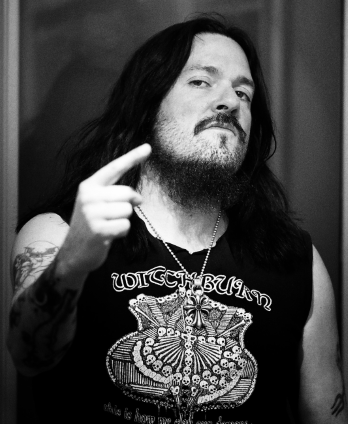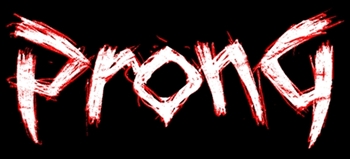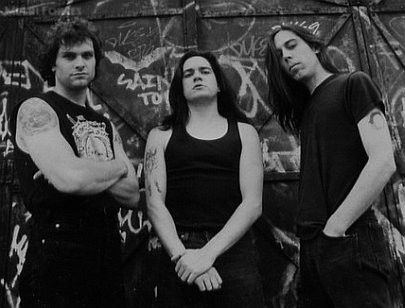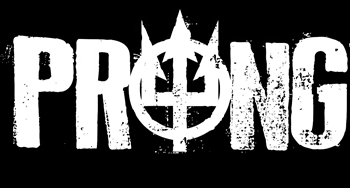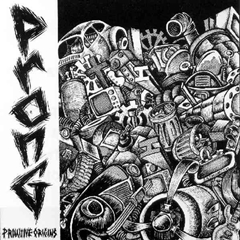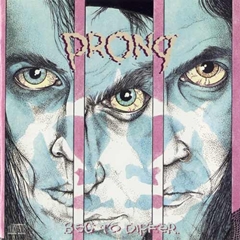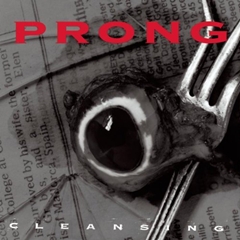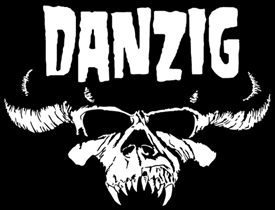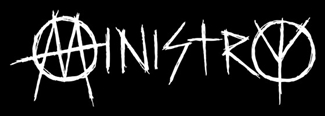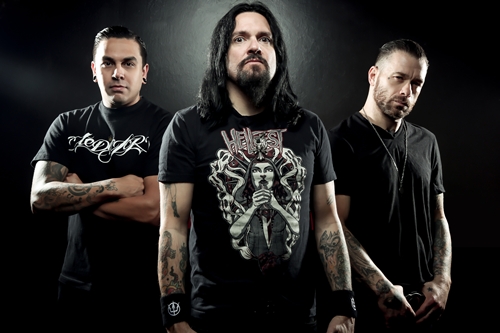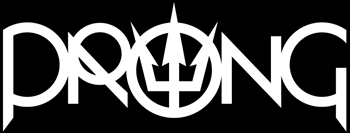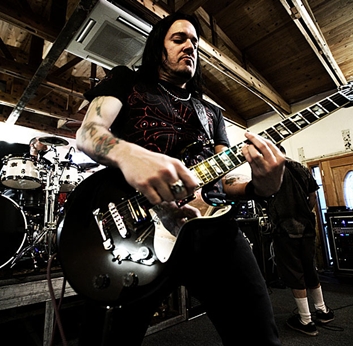 Prong / Tommy Victor Discography Tommy Victor is the lead guitarist and frontman for Prong, the industrial metal / crossover thrash outfit he founded in New York in 1986. Victor has also performed and recorded with Ministry and Danzig, and has appeared on albums from Rob Zombie, Marilyn Manson, Trent Reznor and Soulfly, among others. Prong's music has left a lasting impression, as the band is cited as a major influence by dozens of artists from the industrial and alternative metal genres. Prong's music was used in the intro to the MTV metal music video show "Headbanger's Ball," and dozens of bands have recorded covers of Prong's songs, including Demon Hunter and Six Feet under, each of whom released a cover version of "Snap Your Fingers, Snap your Neck". Over the years, there has been some confusion over Primitive Origins, with some sources calling it an LP and others referring to it an an EP. The effort contained 8 tracks, certainly enough to be considered an LP, but the songs were short for the most part, and the entire effort only contains 18 minutes and 12 seconds of bone-crunching music. For their part, Prong's members have always considered Primitive Origins an EP, bestowing the "debut album" tag on its next effort, which they began recording just a few weeks after Primitive Origins was released. This time, the band included 13 tracks on the record, spanning just under 30 minutes in running time, and Parsons injected his input this time with writing credits on four tracks.
With a major label record deal in place, Victor, Kirkland and Parsons hit the studio to start laying down the band's major label debut. Unlike their first two projects, which they produced themselves, this album would have the benefit of an experienced producer in Mark Dodson, known for his work on albums by Anthrax, Suicidal Tendencies and others. Titled Beg to Differ, the album hit stores on March 12, 1990 and catapulted Prong into the limelight of the evolving heavy metal landscape. The album included the track "Lost and Found," parts of which were used by MTV during commercial breaks of its "Headbanger's Ball" show. Some fans that followed the band from the beginning consider Beg to Differ Prong's purest release, as subsequent releases saw the band experiment with electronic elements as they evolved into an industrial metal outfit. Videos were filmed for the album's title track and "Lost and Found," expanding their audience thanks to heavy rotation on MTV.
Following the release of Prove You Wrong, Gregory departed the band over creative differences, joining The Swans, the same band Parsons had played with before joining Prong. Killing Joke's Paul Raven was brought in, and Victor decided to make the band a four-piece by also adding Killing Joke keyboardist John Bechdel. An EP entitled Whose Fist Is this Anyway was released in 1992, consisting of five remixes of previously released songs and a new track titled "Talk Talk." Like Prong's previous major label efforts, the EP was produced by Mark Dodson, but it would be Prong's last Dodson-helmed project as the band severed ties with the producer a short time later. The band spent the remainder of 1992 writing new material and the first part of 1993 searching for the right producer to work with moving forward.
In late 2000, Victor decided to end Prong's four year hiatus. Enlisting longtime Madonna guitarist Monte Pittman, Jake E. Lee bassist Brian Perry and drummer Dan Laudo, Victor began preparations for a US tour and began shopping around for a new record deal, eventually signing with an independent Spanish label called Locomotive Records. The band embarked on a 42-stop trek across the US in 2001, recording a pair of dates in Detroit and Chicago for a live album. The result was 100% Live, released in October 2002. The band went back into the studio in December 2002 to begin work on Prong's sixth album, its first in seven years. The sessions lasted about three months, and the effort wouldn't be released until November 2003. Perry left the band just before the sessions commenced, so Pittman handled bass duties in addition to his guitar parts.
Prong's seventh album, Power of the Damager, arrived in stores on October 2, 2007. While the album failed to chart on the Billboard 200, it did reach position 47 on the Heatseekers chart, and was met with a far better critical reception than Scorpio Rising, and sales were stronger as well. Victor released a follow-up in 2009 consisting of remixes of all the tracks from Power of the Damager. Titled Power of the Damn Mixxxer, the album failed to strike home with fans or critics and would be Prong's last effort on 13th Planet. Victor explained that a variety of factors influenced his decision to leave 13th Planet, including his concern that Prong would be labeled a Ministry clone. The eighth Prong album, Carved Into Stone, debuted on April 24th, 2012, on Long Branch Records, a subsidiary of SPV / Steamhammer. The effort still did not chart on any major charts, but reached No. 13 on the Heatseekers chart. A ninth album entitled Ruining Lives followed on April 23rd, 2014, charting at No. 77 in Germany.
Tommy Victor has had an endorement deal with Schecter Guitars for several years, and uses them almost exclusively onstage. His primary onstage axe appears to be a black C-1 custom Schecter model, though he also plays a Schecter S1 and the Tommy Victor Signature model, as well. In the studio, Tommy gets a Gibson SG and Gibson Les Paul Custom into the mix.
Guitars: Schecter Tommy Victor Signature Model, Schecter S1, Schecter C-1 Custom, Gibson SG, Gibson Les Paul Custom
| |||||||||||||||||||||||||||||||||||||
|---|---|---|---|---|---|---|---|---|---|---|---|---|---|---|---|---|---|---|---|---|---|---|---|---|---|---|---|---|---|---|---|---|---|---|---|---|---|
